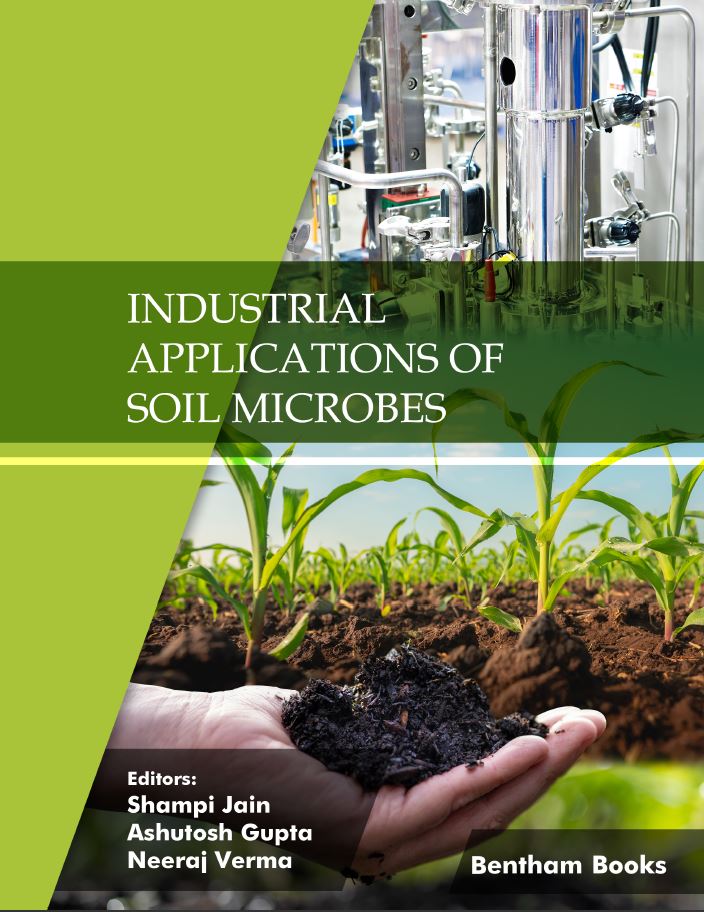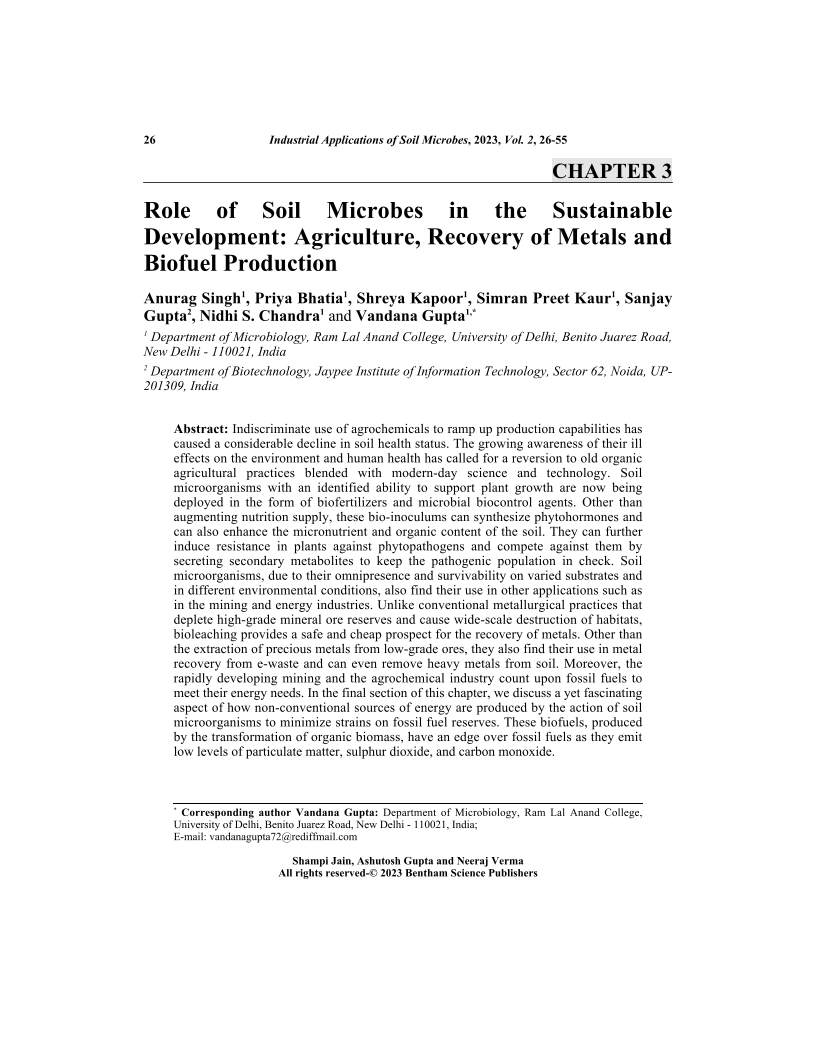Role of Soil Microbes in the Sustainable Development: Agriculture, Recovery of Metals and Biofuel Production

- Authors: Anurag Singh1, Priya Bhatia2, Shreya Kapoor3, Simran Preet Kaur4, Sanjay Gupta5, Nidhi S. Chandra6, Vandana Gupta7
-
View Affiliations Hide Affiliations1 Department of Microbiology, Ram Lal Anand College, University of Delhi, Benito Juarez Road, New Delhi 110021, India 2 Department of Microbiology, Ram Lal Anand College, University of Delhi, Benito Juarez Road, New Delhi - 110021, India 3 Department of Microbiology, Ram Lal Anand College, University of Delhi, Benito Juarez Road, New Delhi - 110021, India 4 Department of Microbiology, Ram Lal Anand College, University of Delhi, Benito Juarez Road, New Delhi - 110021, India 5 Department of Biotechnology, Jaypee Institute of Information Technology, Sector 62, Noida, UP-201309, India 6 Department of Microbiology, Ram Lal Anand College, University of Delhi, Benito Juarez Road, New Delhi - 110021, India 7 Department of Microbiology, Ram Lal Anand College, University of Delhi, Benito Juarez Road, New Delhi - 110021, India
- Source: Industrial Applications of Soil Microbes: Volume 2 , pp 26-55
- Publication Date: November 2023
- Language: English
Role of Soil Microbes in the Sustainable Development: Agriculture, Recovery of Metals and Biofuel Production, Page 1 of 1
< Previous page | Next page > /docserver/preview/fulltext/9789815050264/chap3-1.gif
Indiscriminate use of agrochemicals to ramp up production capabilities has caused a considerable decline in soil health status. The growing awareness of their ill effects on the environment and human health has called for a reversion to old organic agricultural practices blended with modern-day science and technology. Soil microorganisms with an identified ability to support plant growth are now being deployed in the form of biofertilizers and microbial biocontrol agents. Other than augmenting nutrition supply, these bio-inoculums can synthesize phytohormones and can also enhance the micronutrient and organic content of the soil. They can further induce resistance in plants against phytopathogens and compete against them by secreting secondary metabolites to keep the pathogenic population in check. Soil microorganisms, due to their omnipresence and survivability on varied substrates and in different environmental conditions, also find their use in other applications such as in the mining and energy industries. Unlike conventional metallurgical practices that deplete high-grade mineral ore reserves and cause wide-scale destruction of habitats, bioleaching provides a safe and cheap prospect for the recovery of metals. Other than the extraction of precious metals from low-grade ores, they also find their use in metal recovery from e-waste and can even remove heavy metals from soil. Moreover, the rapidly developing mining and the agrochemical industry count upon fossil fuels to meet their energy needs. In the final section of this chapter, we discuss a yet fascinating aspect of how non-conventional sources of energy are produced by the action of soil microorganisms to minimize strains on fossil fuel reserves. These biofuels, produced by the transformation of organic biomass, have an edge over fossil fuels as they emit low levels of particulate matter, sulphur dioxide, and carbon monoxide.
-
From This Site
/content/books/9789815050264.chap3dcterms_subject,pub_keyword-contentType:Journal -contentType:Figure -contentType:Table -contentType:SupplementaryData105

